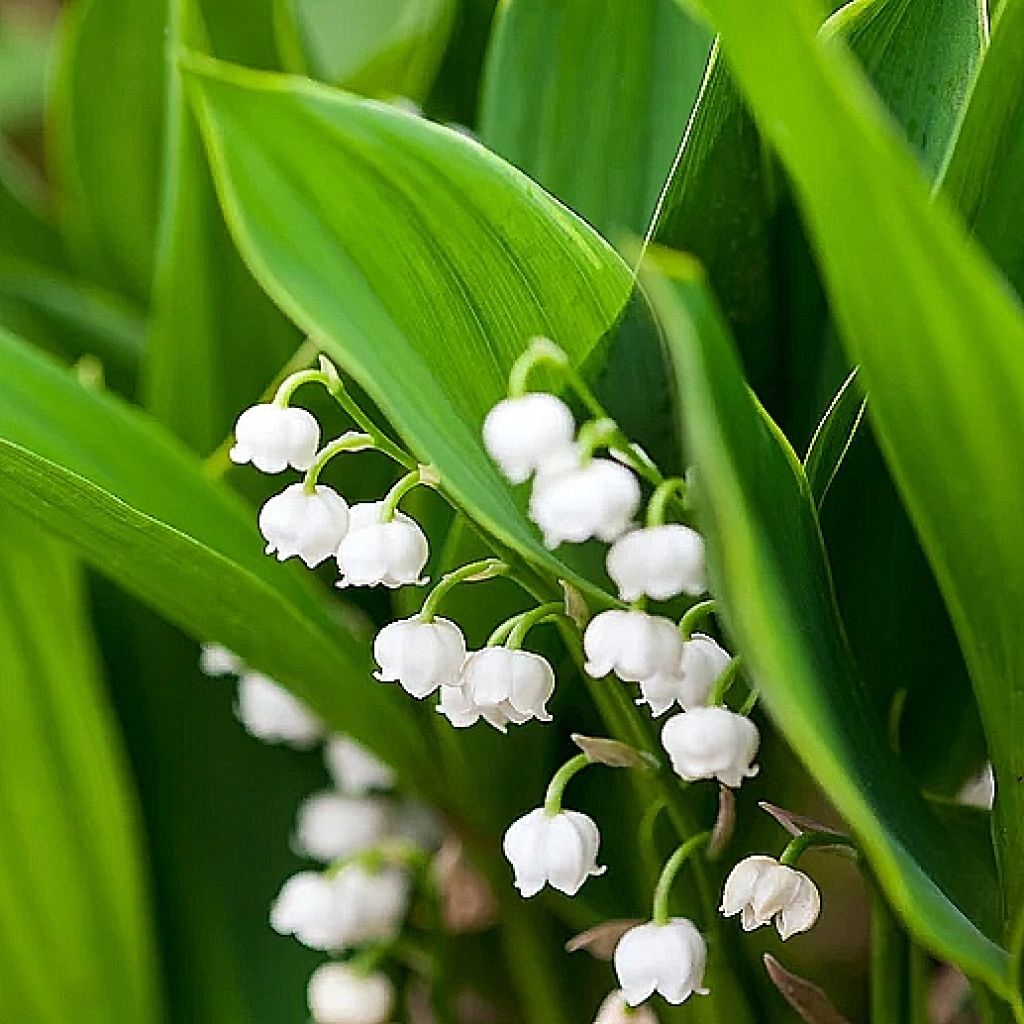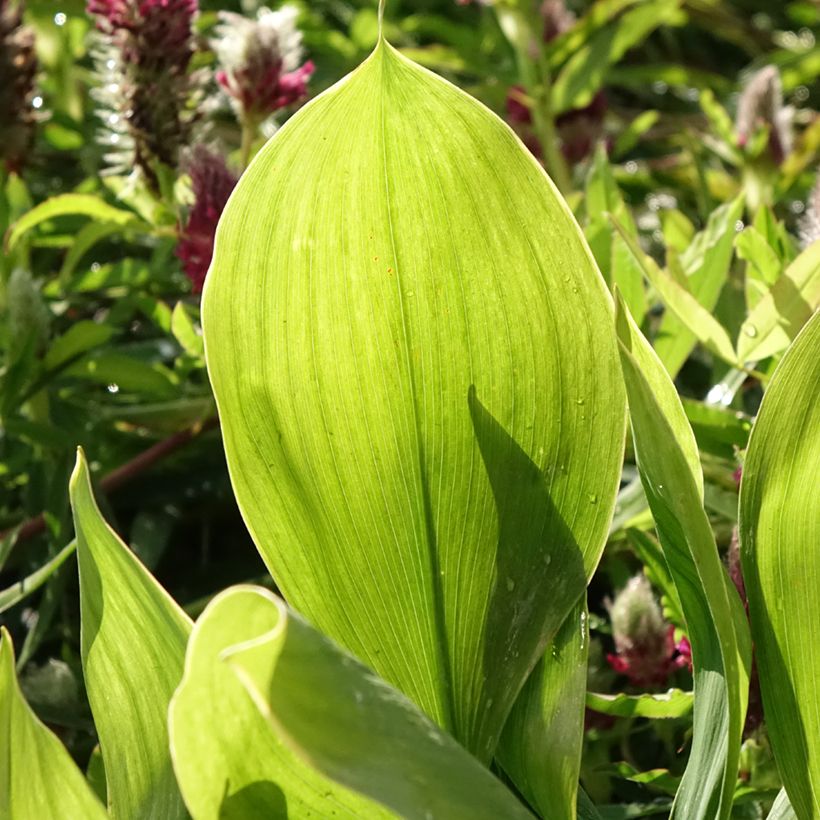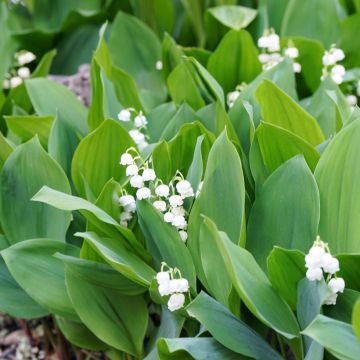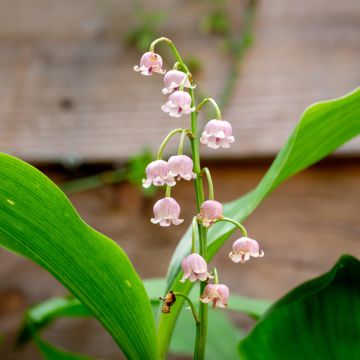

Convallaria majalis Hardwick Hall - Lily of the Valley
Convallaria majalis Hardwick Hall - Lily of the Valley
Convallaria majalis Hardwick Hall
Lily of the Valley
Special offer!
Receive a €20 voucher for any order over €90 (excluding delivery costs, credit notes, and plastic-free options)!
1- Add your favorite plants to your cart.
2- Once you have reached €90, confirm your order (you can even choose the delivery date!).
3- As soon as your order is shipped, you will receive an email containing your voucher code, valid for 3 months (90 days).
Your voucher is unique and can only be used once, for any order with a minimum value of €20, excluding delivery costs.
Can be combined with other current offers, non-divisible and non-refundable.
Home or relay delivery (depending on size and destination)
Schedule delivery date,
and select date in basket
This plant carries a 12 months recovery warranty
More information
We guarantee the quality of our plants for a full growing cycle, and will replace at our expense any plant that fails to recover under normal climatic and planting conditions.
Would this plant suit my garden?
Set up your Plantfit profile →
Description
Convallaria majalis Hardwick Hall is a selection of lily of the valley that stands out for its finely yellow-green-edged blueish foliage, highly fragrant spring flowers, and good drought resistance. All these qualities make it an excellent ground cover under trees and bushes for most regions, decorative even when not in flower.
Convallaria majalis Hardwick Hall belongs to the Convallariaceae or Liliaceae family according to classifications. Its wild ancestor, nicknamed lily of the valley or May lily, is widespread in all clear forests of cool temperate regions in the Northern Hemisphere (Europe, Asia, North America). Lily of the valley is hardy and easy to grow everywhere, in the sun or shade, but prefers a light soil and moisture to flower and spread abundantly.
It is a perennial, deciduous plant that reaches 20 to 30 cm (8 to 12in) high and has a rhizome like fleshy claws, developing into a dense carpet and quickly colonizing the ground. Convallaria majalis 'Hardwick Hall' develops large sheathing leaves at the base, lanceolate to elongate oval, usually ending in a point. The leaf has numerous parallel veins and is slightly bluish-green with light yellow-green margins. Each leaf measures 10 to 20 cm (4 to 8in) long. The plant flowers from April to May with a cluster 20-30 cm (8-12in) high, adorned with 6 to 10 small, pendulous bell-shaped white flowers, arranged on the same side of the stem. These flowers have a characteristic fragrance, with floral and musky notes. After pollination by insects, small red-orange berries containing seeds are formed. All parts of lily of the valley are toxic. The 'Hardwick Hall' variety is well adapted to dry summers the same as 'Haldon Grange'.
Plant Convallaria majalis Hardwick Hall at the edge woodland, along a border, near a passage area, or even in a large pot to enjoy its fragrance. Its delicately variegated foliage brings life to slightly shaded areas for a long period, but it will disappear in summer in dry and hot regions. Pair it with small periwinkles, Liriopes, and European Wild Ginger, Macrorrhizum Geraniums, or Ophiopogons for example.
Report an error about the product description
Convallaria majalis Hardwick Hall - Lily of the Valley in pictures


Flowering
Foliage
Plant habit
Botanical data
Convallaria
majalis
Hardwick Hall
Convallariaceae
Lily of the Valley
Cultivar or hybrid
Other Convallaria - Lily of the valley
View all →Planting and care
Grow Convallaria majalis Hardwick Hall in a pot or at the edge of a shaded border in light and humus-rich soil. It tolerates root competition from trees and bushes well and summer drought (its foliage dries up in summer). This perennial will not mind heavy frosts. It has no pests or parasites. Attention, it is very toxic.
Planting period
Intended location
Care
This item has not been reviewed yet - be the first to leave a review about it.
Haven't found what you were looking for?
Hardiness is the lowest winter temperature a plant can endure without suffering serious damage or even dying. However, hardiness is affected by location (a sheltered area, such as a patio), protection (winter cover) and soil type (hardiness is improved by well-drained soil).

Photo Sharing Terms & Conditions
In order to encourage gardeners to interact and share their experiences, Promesse de fleurs offers various media enabling content to be uploaded onto its Site - in particular via the ‘Photo sharing’ module.
The User agrees to refrain from:
- Posting any content that is illegal, prejudicial, insulting, racist, inciteful to hatred, revisionist, contrary to public decency, that infringes on privacy or on the privacy rights of third parties, in particular the publicity rights of persons and goods, intellectual property rights, or the right to privacy.
- Submitting content on behalf of a third party;
- Impersonate the identity of a third party and/or publish any personal information about a third party;
In general, the User undertakes to refrain from any unethical behaviour.
All Content (in particular text, comments, files, images, photos, videos, creative works, etc.), which may be subject to property or intellectual property rights, image or other private rights, shall remain the property of the User, subject to the limited rights granted by the terms of the licence granted by Promesse de fleurs as stated below. Users are at liberty to publish or not to publish such Content on the Site, notably via the ‘Photo Sharing’ facility, and accept that this Content shall be made public and freely accessible, notably on the Internet.
Users further acknowledge, undertake to have ,and guarantee that they hold all necessary rights and permissions to publish such material on the Site, in particular with regard to the legislation in force pertaining to any privacy, property, intellectual property, image, or contractual rights, or rights of any other nature. By publishing such Content on the Site, Users acknowledge accepting full liability as publishers of the Content within the meaning of the law, and grant Promesse de fleurs, free of charge, an inclusive, worldwide licence for the said Content for the entire duration of its publication, including all reproduction, representation, up/downloading, displaying, performing, transmission, and storage rights.
Users also grant permission for their name to be linked to the Content and accept that this link may not always be made available.
By engaging in posting material, Users consent to their Content becoming automatically accessible on the Internet, in particular on other sites and/or blogs and/or web pages of the Promesse de fleurs site, including in particular social pages and the Promesse de fleurs catalogue.
Users may secure the removal of entrusted content free of charge by issuing a simple request via our contact form.
The flowering period indicated on our website applies to countries and regions located in USDA zone 8 (France, the United Kingdom, Ireland, the Netherlands, etc.)
It will vary according to where you live:
- In zones 9 to 10 (Italy, Spain, Greece, etc.), flowering will occur about 2 to 4 weeks earlier.
- In zones 6 to 7 (Germany, Poland, Slovenia, and lower mountainous regions), flowering will be delayed by 2 to 3 weeks.
- In zone 5 (Central Europe, Scandinavia), blooming will be delayed by 3 to 5 weeks.
In temperate climates, pruning of spring-flowering shrubs (forsythia, spireas, etc.) should be done just after flowering.
Pruning of summer-flowering shrubs (Indian Lilac, Perovskia, etc.) can be done in winter or spring.
In cold regions as well as with frost-sensitive plants, avoid pruning too early when severe frosts may still occur.
The planting period indicated on our website applies to countries and regions located in USDA zone 8 (France, United Kingdom, Ireland, Netherlands).
It will vary according to where you live:
- In Mediterranean zones (Marseille, Madrid, Milan, etc.), autumn and winter are the best planting periods.
- In continental zones (Strasbourg, Munich, Vienna, etc.), delay planting by 2 to 3 weeks in spring and bring it forward by 2 to 4 weeks in autumn.
- In mountainous regions (the Alps, Pyrenees, Carpathians, etc.), it is best to plant in late spring (May-June) or late summer (August-September).
The harvesting period indicated on our website applies to countries and regions in USDA zone 8 (France, England, Ireland, the Netherlands).
In colder areas (Scandinavia, Poland, Austria...) fruit and vegetable harvests are likely to be delayed by 3-4 weeks.
In warmer areas (Italy, Spain, Greece, etc.), harvesting will probably take place earlier, depending on weather conditions.
The sowing periods indicated on our website apply to countries and regions within USDA Zone 8 (France, UK, Ireland, Netherlands).
In colder areas (Scandinavia, Poland, Austria...), delay any outdoor sowing by 3-4 weeks, or sow under glass.
In warmer climes (Italy, Spain, Greece, etc.), bring outdoor sowing forward by a few weeks.


































